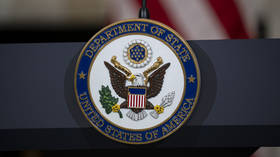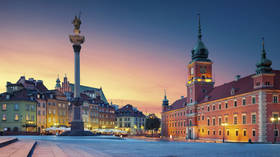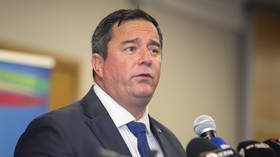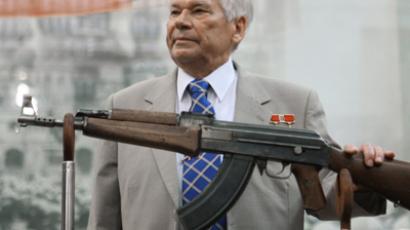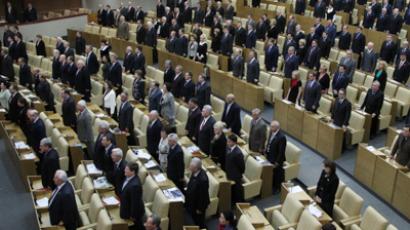Duma elections: A who’s who
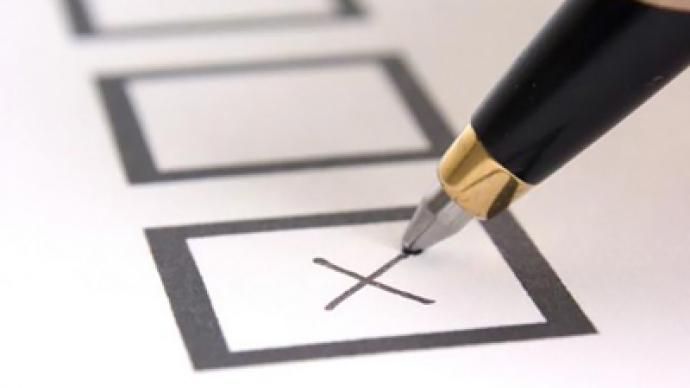
Seven registered parties are competing in Russia’s parliamentary elections on December 4.
Below is a brief description of the rivals in the order that they appear on voting ballots.
Fair Russia party
Fair Russia (also known as Just Russia) is listed first on the voting ballots. The social-democratic party is led by the former chairman of the upper house – the Federation Council – Sergey Mironov, 58.The political movement stands for social fairness, freedom and solidarity. “Our goal is new socialism,” its election program states. It was created in October 2006, as a merger of Rodina (Motherland), the Party of Life, and the Party of Pensioners. Later the political movement was joined by six more parties, becoming the largest left-wing party in Russia with over 400,000 members (according to Fair Russia’s official website). Fair Russia had 38 representatives in the 450-seat State Duma of fifth convocation (2007-2011).
Liberal-Democratic party
The Liberal-Democratic Party of Russia (LDPR) is one of the oldest parties in new Russia, which was founded back in 1990 and officially registered in 1991. Since then the right-wing party has been chaired by its founder, Deputy Chairman of the State Duma Vladimir Zhirinovsky, 65. A charismatic politician, he is perhaps the most controversial player on Russia’s political stage. Zhirinovsky is known for his nationalist beliefs, rather shocking statements and eccentric behavior, which often make headlines in the media in Russia and abroad. He has taken part in four presidential elections in 1991-2008. The LDPR names the “revival of Russia as a great power” among its major goals. In its program it calls for multi-party system, free elections, “well thought-out reforms,” fixing in the Constitution “the state-forming status of the Russian people,” imposing state monopoly on production and sales of raw materials and energy. In 2007 parliamentary elections the LDPR came third, getting slightly over 8 per cent of the votes, which secured it 40 seats in the lower house.
Patriots of Russia
The Patriots of Russia party was created in 2005 through a merger of several moderate left-wing and patriotic political organizations. Positioning itself as “popular party”, the Patriots of Russia suggest the nationalization of “illegally privatized property” and call for the rule of law in the country “where the state is for a man” but not the other way round. “Justice to all, happiness to everyone,” its slogan reads. The party also calls for the creation of socially-oriented market economy through the radical reforming of the budget policy. The party was not represented in the previous State Duma.The leader of the Patriots of Russia is Gennady Semigin, 47, who was an MP in the Duma of third and fourth convocations, where he was elected as a member of the Communist party (KPRF). In 2004 Semigin, former Deputy Speaker of the lower house was expelled from KPRF.
The Communist Party of the Russian Federation
The Russian Communist party (KPRF) is the second largest in the country, was founded in 1993, as a successor to the Communist party of Soviet Russia. Its ideology is more-or-less clear to everyone who was born in the Soviet Union – Marxism, Leninism, communism, protection of the interests working people.The KPRF 2011 election program – titled ““Return the Stolen Motherland”- proposes the nationalization of industrial sectors, including energy, metallurgy, railways and aviation. Its main goal is to build “21st-century Socialism” in Russia, where power would belong to “workers and people’s patriotic forces headed by the KPRF”. Among its priorities that party names independent courts system, state control over prices for essential goods, free education and affordable healthcare system, no taxes for the poor, favorable conditions for small and medium enterprises, and fighting crime and corruption.In the previous elections the party came second and secured 57 seats. It was the largest opposition party represented in the parliament. Gennady Zyuganov, 67, has been the chairman of the KPRF since its foundation. Zyuganov ran for president in 1996, 2000 and 2008, coming second each time.
Yabloko
Yabloko is one of the oldest parties in modern Russian history. It was registered as a political party in 2002, but de-facto it started as a political bloc in 1993 in the very first congregation of the State Duma. Yabloko means “apple” in Russian, but it is actually a word made of the names of the three founders of the initial bloc – Yavlinsky Boldyrev and Lukin. Grigory Yavlinsky was leader of the party from its beginning until 2008 when he announced he was leaving politics. Sergey Mitrokhin became Yabloko leader after that, but during the 2011 campaign the much more charismatic Yavlinsky decided to return to politics and head Yabloko’s elections list.Yabloko maintains strong democratic and liberal stand with social inclination. Its activities concentrate on criticism of the authorities’ actions, such as violence during the 1993 political crisis or the war in Chechnya. The party’s supporters are devoted, but not numerous. Since 1993 the number of votes Yabloko has received at elections was constantly decreasing until it fell to only 4.30 per cent in 2003 – less than the passing threshold that was raised to 5 per cent before this poll.
United Russia
United Russia was founded in 2001 as a merger of three political movements headed by strong state officials – the Emergencies Minister, the Moscow Mayor and the president of Russia’s largest internal republic, Tatarstan. In 2002 the party elected Boris Gryzlov, then the Interior Minister, as its chairman. In 2003, United Russia won parliamentary elections by a landslide and Gryzlov became the lower house speaker. However, the real leader of the party is Vladimir Putin – currently Russian prime minister and back then president of the Russian Federation. Putin pledges his full support to United Russia, but is not a party member. United Russia’s political platform is based on strong role of state in the economy and in unification of all political forces in pursuit of a single cause. The party calls this cause “Putin’s plan” and promotes economic development, social programs and maintaining of the nation’s military might. Most Russian governors are members of United Russia, as well as many of the senior executives of major state-owned corporations. The number one on United Russia’s elections list is incumbent President Dmitry Medvedev (who also is not a member of the party).
Right Cause
The Right Cause party is a relatively new political force, founded in 2008 as a merger of the Democratic Party, the Civil Force movement and the SPS party. The party promotes rightist pro-business ideas and general progress. The party’s last parliamentary campaign was marred by a scandal – in June 2011 the party elected billionaire Mikhail Prokhorov as its leader. Prokhorov promised substantial financial support from personal means and set very ambitious goals. However, by as early as September Prokhorov left the party. Prokhorov then demanded that the party return all investments (which was duly done), but more importantly the party had to make new program and new elections lists over a very short period of time. The party is currently headed by functionary Andrey Dunayev, who also heads the elections list. Other people on the list are the Grand Master of the Freemason Lodge of Russia, Andrey Bogdanov and tennis star Anna Chakvetadze.




